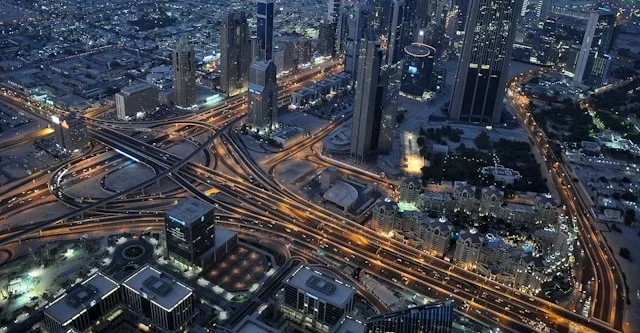The 2034 FIFA World Cup will transform Saudi Arabia, with major infrastructure projects and a global spotlight on the Kingdom’s Vision 2030
Saudi Arabia is gearing up for a monumental transformation ahead of hosting the 2034 FIFA World Cup, an event that promises to leave a lasting impact on the Kingdom’s infrastructure, economy, and global image. Officially named as the host, Saudi Arabia will soon begin preparing for the world’s most-watched sporting event, with plans for the construction of state-of-the-art stadiums, hotel rooms, and transportation networks.
The 2034 World Cup will see games played across 15 stadiums in five host cities—Riyadh, Jeddah, Alkhobar, Abha, and NEOM. While four of these stadiums already exist, 11 will be newly built. A major highlight will be the King Salman International Stadium in Riyadh, which will host both the opening match and the final. The stadium will be designed to accommodate 92,760 spectators, while other venues will range in size, with quarterfinal and semifinal stadiums expected to hold 60,000 fans, and the largest stadiums for the opening match and final accommodating 80,000.
Saudi Arabia is also preparing to accommodate a massive influx of visitors. The Kingdom plans to build around 230,000 hotel rooms to cater to fans, dignitaries, and media from around the globe. These developments will further cement Saudi Arabia’s position as a major player in the global sporting arena.
Embed from Getty ImagesLooking to Qatar’s successful hosting of the 2022 World Cup provides some insight into what Saudi Arabia can expect. Qatar’s investment in its stadiums and infrastructure left a lasting legacy, with many venues repurposed for long-term use. The Lusail Stadium, for example, continues to host football matches in the Qatar Stars League, while the Al-Bayt Stadium is being converted into a hotel and shopping centre. Saudi Arabia will no doubt learn from these examples, ensuring that its new stadiums and infrastructure projects have lasting value.
Ebraheem Alghafees, a Saudi football fan who attended the 2022 World Cup in Qatar, is enthusiastic about the Kingdom’s World Cup plans. “Attending the games was thrilling, and the electrifying atmosphere in the stadiums left an indelible impression on me,” Alghafees shared with Arab News. He believes that Saudi Arabia can take valuable lessons from past World Cups, particularly in areas like infrastructure, transportation, and hospitality. “Investing in infrastructure and creating a cultural narrative that showcases Saudi heritage, while leveraging advanced technologies, will help deliver a memorable experience,” he added.
For Alghafees, the World Cup represents a significant opportunity for Saudi Arabia to showcase its Vision 2030 ambitions. The Kingdom’s ongoing transformation aims to position Saudi Arabia as a global hub for cultural exchange, innovation, and excellence, with the World Cup offering an unparalleled platform to demonstrate these aspirations. Alghafees sees the event as a milestone for the Kingdom, saying, “It is an honour to see Saudi Arabia rise to the occasion on such a grand scale.”
Saudi Arabia’s rise as a destination for major sporting events has been rapid in recent years, with the Kingdom hosting an increasing number of international tournaments across various sports. From the World Youth Championship in 1989 to the Confederations Cup in 1997, Saudi Arabia has a history of hosting FIFA events. But it is in the past decade that the Kingdom has truly made its mark, with the rise of events like the Saudi Pro League’s growing popularity and major boxing and Formula E races. This momentum only reinforces the Kingdom’s ability to deliver a world-class World Cup experience.
As the 2034 tournament approaches, Saudi Arabia’s preparations will not only bring new infrastructure and tourism to the Kingdom but will also serve as a testament to its evolving role on the global stage.
